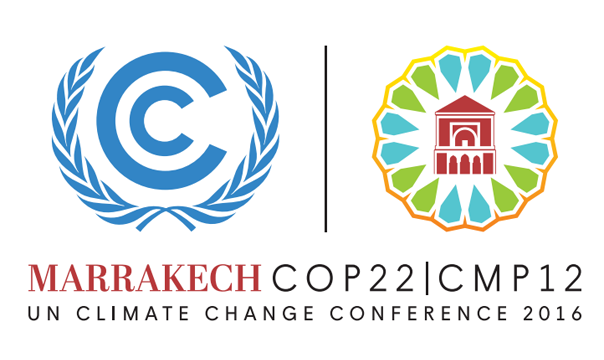From the 7th till the 18th November in Marrakech (morocco) the COP22 and contemporaneously the CMP12 are being held.
In order: the first one is the Conference of the Parties, coming this year at its 22nd edition, after the 21st famously held in Paris last year which have reached the historical Paris Agreement. CMP 12 is the Conference of Parties serving as the meeting of the parties to the Kyoto Protocol.
Summing it up: it is a great Conference on Climate Change.
Why is it important?
First: it is the first time that the parties altogether meet after the agreement, the signing of the quorum and therefore the entry into force of the Agreement, which officially is enacted since November 4th current year.
Therefore it is a test bed for the efforts enacted by signatories along the past year, and also a meeting point to design the strategies operationalising the agreement.
In particular the greatest tasks will be the ones to:
– Define practical measures that translate the agreement into reality and giving to these ones a deadline and assessment measures ( for example efficient accounting methods in order to avoid “double counting”)
– Define the finances. In Paris the decided global sum was 100 billion dollars (per year). Are they enough? How to keep track of them? In this sense, multiple criticisms have been rumoured throughout this year. Just recently UN released a paper stating that 5 to 7 thousands billions should serve to reach a sustainable development that could help also development countries. Additionally according to a new Oxfam report released on the eve of the United Nations’ climate change conference in Morocco, the amount of net financial assistance going to help developing countries fight climate change has been miscounted by tens of billions of dollars.
A huge space in the agenda is devoted to financing, while also Russian and Mexican proposed amendments to the treaty will be considered. Some Gender and equality issues will be also discussed.
The situation till now
And the last point seemed to be crucial in these days of meetings. In fact in this interesting article on NYT, the director of the Energy and National Security Program at the Center for Strategic and International Sarah Ladislaw explained that Marrakech would be no harsh on countries which have been poorly performing with respect Paris pledges. Instead, it ought to be more about confidence building and aiding problematic countries.
In this sense, there is surely a focus on developing countries.
China will commit 3.1 billion dollars to climate financing to help developing countries. During the opening days of the conference Australia aired the news that they will soon ratify the Agreement. For sure these statements served as a confidence boost for the parties.
However
Along the meetings, however, also controversial news approached Morocco.
First of all, Donald Trump was declared President Elect of US: the “republican” is very well known for his revisionist attitude towards Climate Change.
Notwithstanding the shock (and the Hollande and Ban Ki Moon pressures to withdraw campaigning statements) , the news was also positively got, with the general understanding that non – governmental parties will provide continuous support to green efforts playing a pivotal role that will maintain consensus.
However, as the Guardian firmly reported, non – governmental parties aren’t just glittering. Indeed, among these guests big fossil fuel and carbon providing companies (such as Peabody, Exxon Mobil etc..) are present, being free to be consulted and provide interventions during climate talks.
This smells definitely like conflict of interest.



